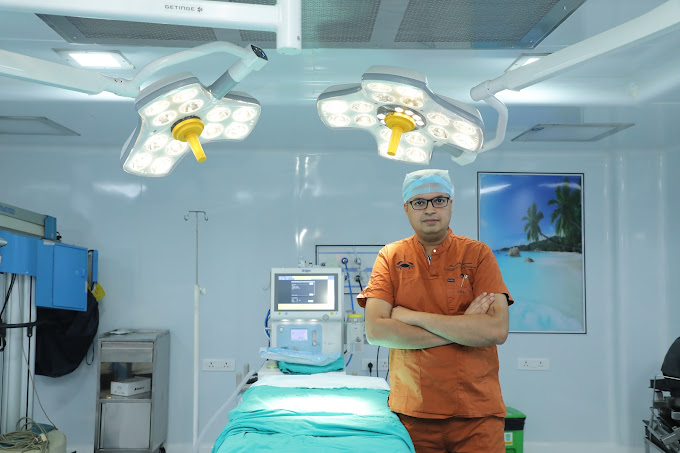Genitourinary Oncology Surgery in Indore
- Home
- Genitourinary Oncology Surgery in Indore

Genitourinary cancers encompass a diverse range of malignancies affecting organs such as the kidney, ureters, adrenal glands, urinary bladder, prostate, urethra, penis, and testis. Etiological factors include smoking, chemical exposure, poor personal hygiene, and conditions like undescended testis. Common symptoms include hematuria (blood in urine), difficulty urinating, abdominal masses, uncontrolled hypertension, non-healing ulcers on the penis, and groin swellings.
Correct Diagnosis and Staging: We specialize in accurate diagnosis and staging of genitourinary tract cancers, ensuring precise treatment planning.
Kidney Cancer Surgery: Our surgical interventions include radical total nephrectomy and partial nephrectomy to address kidney tumors effectively.
Adrenal Gland Tumor Surgery: We perform surgeries for tumors of the adrenal glands, ensuring comprehensive care for patients with adrenal malignancies.
Urinary Tract Surgery: Our expertise extends to surgeries for ureter, urinary bladder, and urethral cancers, tailored to individual patient needs.
Penile Cancer Surgery: We offer surgical treatment for carcinoma of the penis with organ preservation techniques, prioritizing functional outcomes and oncological efficacy.
Ilioinguinal Lymph Node Dissection: We perform surgical dissection of ilioinguinal lymph nodes to assess cancer spread and inform treatment decisions.
Testicular Cancer Surgery: Our team provides surgical interventions for scrotal and testicular tumors, employing advanced techniques to ensure optimal outcomes.
Retroperitoneal Lymph Node Dissection: We offer surgical dissection of retroperitoneal lymph nodes as part of comprehensive treatment for certain genitourinary cancers.
Choose our center for our specialized expertise in genitourinary oncology surgery in Indore and patient-centered approach to care. With a focus on personalized treatment plans and multidisciplinary care, we strive to achieve the best possible outcomes for each patient.
Common symptoms include hematuria, difficulty urinating, abdominal masses, uncontrolled hypertension, non-healing ulcers on the penis, and groin swellings.
Diagnostic tests may include imaging studies, biopsies, blood tests, and urine tests to confirm the presence and extent of cancer.
Treatment options may include surgery, chemotherapy, radiation therapy, targeted therapy, immunotherapy, and surveillance, depending on the type and stage of cancer.
Recovery varies depending on the type of surgery performed and individual patient factors. Our team provides comprehensive post-operative care and support to ensure a smooth recovery and optimal long-term outcomes.
